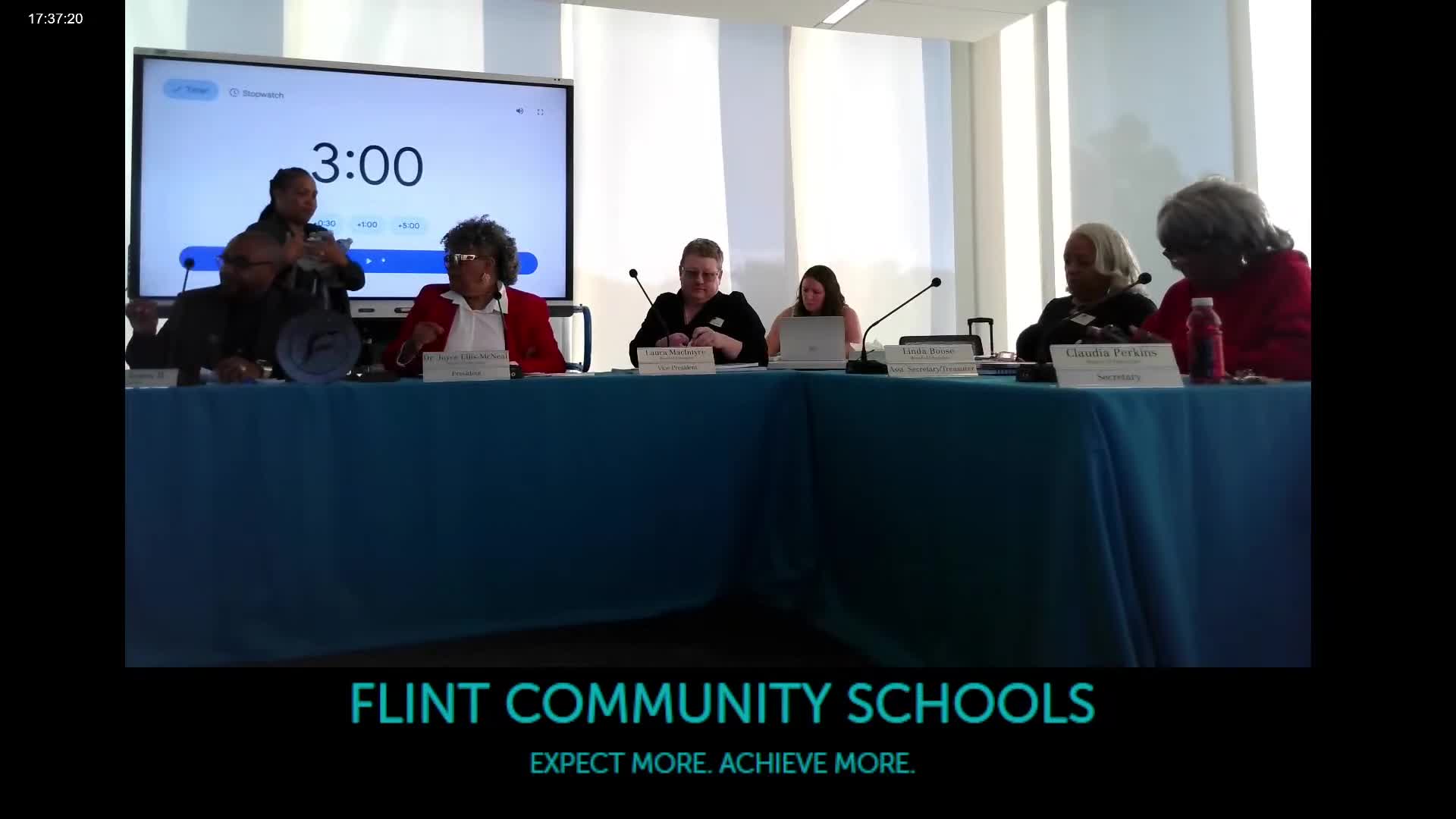Housing commission and a national education firm pitch door‑to‑door reengagement, home visits and student advocates to Flint schools
Get AI-powered insights, summaries, and transcripts
Subscribe
Summary
The Flint Housing Commission and Concentric Education Solutions presented partnership proposals to the board to expand in‑neighborhood academic supports, home visits and professional student advocates to boost attendance, retention and enrollment; trustees asked for more detail on budget, measurement and local partnerships.
Two outside organizations proposed multi‑year partnerships to Flint Community Schools on initiatives aimed at reengaging students, improving attendance and creating neighborhood‑based supports.
Keyshawn Wade, resident services coordinator at the Flint Housing Commission, presented a proposal for two programs: the FHC Scholars Program for ages 3–19 and the FHC Young Adults Program for ages 14–26. Wade said the housing authority could host after‑school tutoring, mentorship and life‑skills programming in community rooms and computer labs at its properties, reducing transportation barriers for residents.
David Heaver, founder and board chair of Concentric Education Solutions, and Molly Abel Lloyd, Concentric's chief executive, described an ethnographic approach they use in other cities to identify why students stop attending and to reengage them through home visits, local hires and what they call professional student advocates (PSAs). Concentric staff said PSAs combine outreach, case management, academic acceleration and mentoring and are recruited from the communities they serve. The presenters described a pilot approach that could include a 90‑day implementation and a 2–3 year partnership to demonstrate systemic impact.
Concentric representatives said the model uses home‑visit reporting technology to capture families' needs and route resources in real time; they cited prior work in Wayne County and Detroit where they said reengagement efforts produced measurable returns. The presenters noted fundraising and scaling experience: Concentric reported raising a Series A in excess of $10,000,000 to scale its work nationwide.
Board members asked detailed questions about cost, tracking and what would be different from existing nonprofit efforts. A board member calculated that the program as proposed would cost about $1.23 million over three years and estimated the net enrollment gain at roughly 130 students; the speaker framed that number as a back‑of‑the‑envelope figure. Trustees also pressed for clarity on how Concentric and other partners will coordinate with existing local organizations and asked for evidence of fidelity and measurable outcomes. One trustee said Flint already has many service providers but questioned whether the new model would duplicate or coordinate those services.
Denisha Stinson, a reading intervention teacher at Southwestern Classical Academy, spoke during public comment before the presentations and raised a separate but related concern about classroom instruction and oversight: she said teachers are certified but lack the coaching and professional development to teach very low‑performing readers, that multiple curricula are being used inconsistently, and that professional development and academic coaching were needed to raise results.
In response to trustees' questions, Concentric acknowledged they recruit locally, perform ethnographic home visits and track students in a data system intended to show whether reengagement efforts result in sustained attendance and academic gains. Concentric said they do not ask for large up‑front payments and propose working with districts year‑to‑year to fit budgets. Trustees asked Concentric to return with more detailed deliverables, cost breakdowns, and how outcomes would be tracked and reported to the full board.
Superintendent Jones and several trustees said the district would continue discussions with Concentric and the Flint Housing Commission; trustees asked staff to coordinate follow‑up meetings involving the district's academic leadership and community partners.
